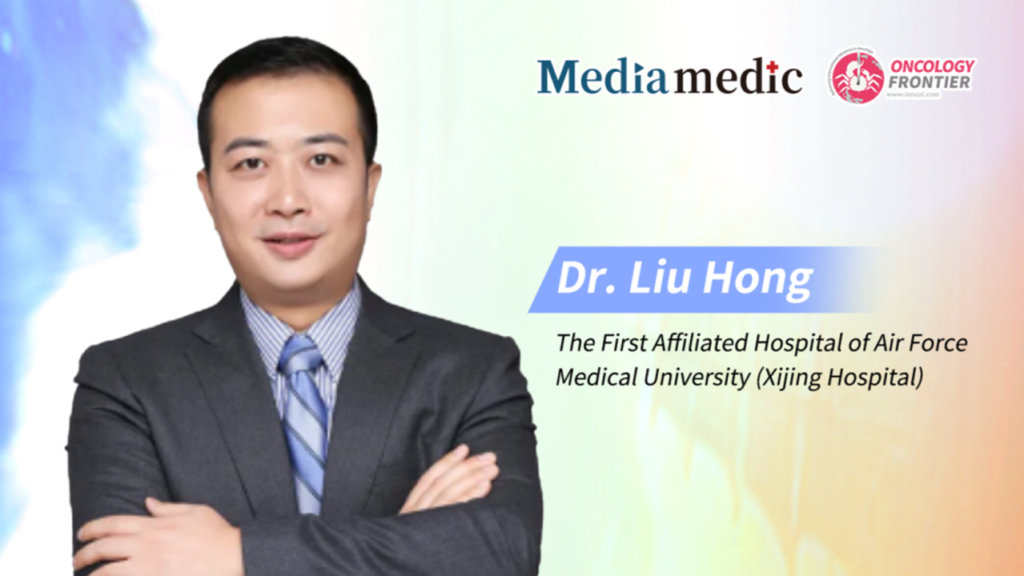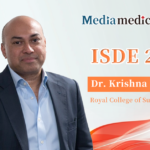
Editor’s Note: From September 26 to 28, 2024, the China Anti-Cancer Association (CACA) and the CACA Integrative Esophageal Cancer Committee hosted the 2024 CACA Integrative Esophageal Cancer Academic Conference in Hefei. The conference, under the theme “Winning in Integration for Cancer Prevention and Treatment,” gathered the latest research developments and clinical experiences from experts in esophageal cancer worldwide. During the event, Oncology Frontier had the opportunity to interview Dr. Liu Hong from The First Affiliated Hospital of Air Force Medical University (Xijing Hospital). In this interview, Professor Hong delves into the trends of integrative treatment, individualized care, and the importance of comprehensive patient management. Below is the full transcript of the interview for our readers.Oncology Frontier: In this conference, you shared insights on “Perioperative Treatment for Esophageal Cancer: The Xijing Experience.” Could you tell us more about Xijing Hospital’s unique experience and highlights in this field?
Dr. Liu Hong: At Xijing Hospital, we have made some groundbreaking achievements in perioperative treatment for esophageal cancer, and I’d like to highlight three key aspects:
Firstly, our approach no longer relies solely on surgery or chemotherapy. Instead, we integrate multiple perioperative treatment strategies, significantly improving overall patient outcomes.
Secondly, we’ve found that combining neoadjuvant chemotherapy with targeted and immunotherapy can further enhance survival outcomes for patients with resectable advanced esophageal cancer. While previous studies have shown that neoadjuvant chemotherapy alone provides survival benefits, our combined approach has yielded even more significant results.
Lastly, by combining basic research with clinical practice, we have identified new tumor markers that help us precisely select patients who are more responsive to targeted immunotherapy, increasing the accuracy and efficacy of our treatments.
Oncology Frontier: As medical advancements continue, what future trends do you foresee in perioperative treatment for esophageal cancer? What forward-looking plans does Xijing Hospital have in this area?
Dr. Liu Hong: There are three major trends in perioperative treatment for esophageal cancer. First, it’s essential to adhere to the CACA guidelines for integrated diagnosis and treatment. Different patients require different treatment approaches. Some may be suited for early surgery, while others may need neoadjuvant therapy or conversion therapy.
Second, with advances in technologies like artificial intelligence and gene testing, individualized treatment will be the future. We can develop more personalized treatment plans based on a patient’s tumor stage and genetic profile to maximize treatment efficacy.
Lastly, treatment should not be limited to addressing cancer alone but should consider comprehensive patient management, from prevention and screening to treatment and rehabilitation. As Academician Fan Daiming emphasized during the conference, treatment must focus on the “person.” Esophageal cancer treatment needs to take a multi-dimensional approach, including prevention, screening, diagnosis, treatment, rehabilitation, and more, to improve overall treatment quality.
At Xijing Hospital, we focus on two types of patients.For patients with advanced esophageal cancer who cannot undergo surgery, we are conducting clinical research to explore how we can extend survival while minimizing the side effects of treatments. We are also exploring the potential role of integrating traditional Chinese medicine with Western medicine to find more effective treatment strategies. For patients with resectable advanced esophageal cancer, we combine preoperative neoadjuvant chemotherapy with targeted and immunotherapy to improve the objective response rate (ORR), disease control rate (DCR), pathological complete response (pCR), and R0 resection rate. Additionally, we aim to provide scientific evidence for prognostic evaluation and treatment decisions by identifying tumor markers.
Oncology Frontier:As Chair of the CACA Integrative Esophageal Cancer Committee, how do you believe integrating medical approaches can promote the complementary strengths of Chinese and Western medicine to better serve patients?
Dr. Liu Hong:Perioperative treatment for esophageal cancer heavily depends on integrated treatment, with one of the key elements being the integration of Chinese and Western medicine. In clinical research, we predominantly use Western research models. However, in managing patients holistically, we incorporate traditional Chinese medicine to help mitigate the side effects that may arise during treatment.
Moreover, our integration goes beyond combining Chinese and Western medicine. It also involves merging Eastern and Western treatment philosophies. Although our research focuses on Chinese patients with esophageal cancer, the treatment methods and medications are largely based on Western models. We aim to adapt these to China’s specific conditions to provide patients with the best possible outcomes.
Dr. Liu Hong
- Chief Physician and Director of the Department of Digestive Surgery at Xijing Hospital, First Affiliated Hospital of Air Force Medical University
- PhD supervisor and postdoctoral research mentor
- Visiting Scholar at Johns Hopkins Hospital, USA
- Director, Integrative Esophageal Cancer Committee, CACA
- Vice Chair, CACA Integrative Esophageal Cancer Committee
- Standing Member, CACA Infectious Tumors Committee
- Member, Colorectal Cancer Quality Control Committee, National Cancer Center
- Recipient of one National Science and Technology Award (First Prize) and two Shaanxi Provincial Science and Technology Awards (First Prize)


